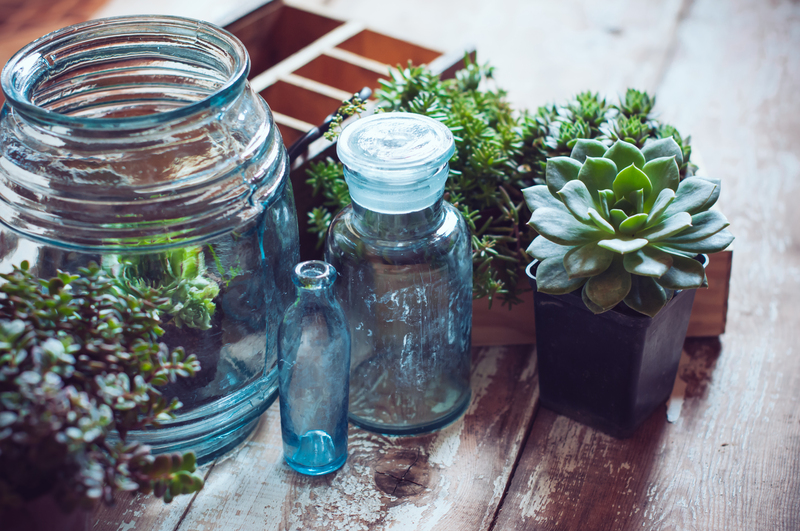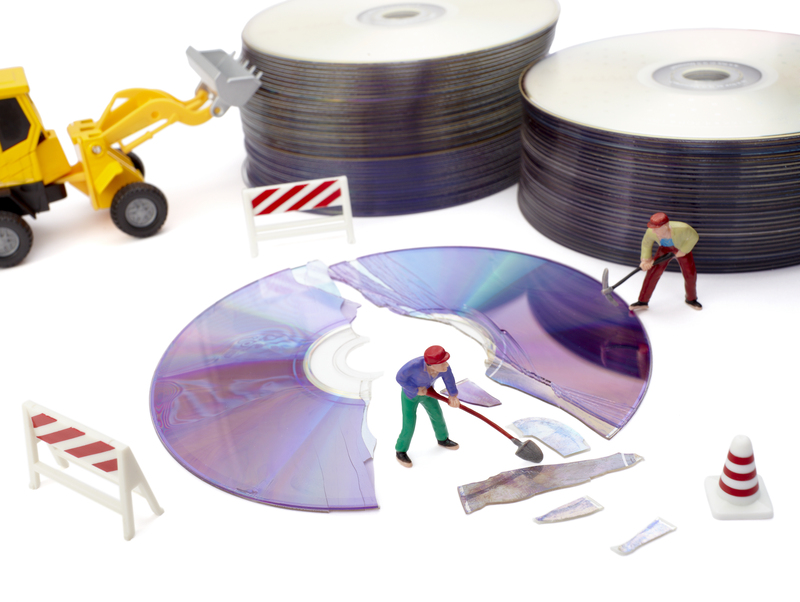Exploring Recycling with Kids Through Stories and Play
Teaching children about recycling is more important than ever. In today's world, where the environment needs our attention, instilling the concepts of sustainability and environmental responsibility early on can make a lasting impact. But how do we turn potentially complex topics like waste management and recycling into something digestible--and even fun--for children? The answer lies in creative approaches like engaging stories and interactive play. In this comprehensive guide, we'll delve into exploring recycling with kids through stories and play, offering ideas and tips for parents, educators, and caregivers to nurture eco-friendly habits in children.

Why Teach Kids About Recycling?
Recycling is not just about sorting bottles or cans; it's about understanding our role in caring for the planet. Children, naturally curious and eager to learn, can become enthusiastic stewards of the environment if given the right tools and motivation. Teaching kids about recycling through playful experiences and engaging narratives helps them:
- Develop environmental awareness
- Practice good citizenship
- Learn critical thinking and problem-solving skills
- Understand the impact of their actions on the world
The Power of Storytelling in Environmental Education
Stories are powerful. They have the unique ability to captivate young minds and instill lasting values. When we share stories about recycling, we help children visualize the journey of trash and the magical transformation of materials into new objects. These narratives can inspire empathy for the planet and reinforce the importance of environmental stewardship.
Inspiring Tales: Children's Books About Recycling
Reading together is a wonderful way to introduce complex topics like recycling to kids. Here are a few children's books about recycling that can start meaningful conversations and spark curiosity:
- The Adventures of a Plastic Bottle by Alison Inches: Follow a plastic bottle's journey from the recycling bin to becoming something completely new. This story makes recycling relatable and fun!
- Michael Recycle by Ellie Bethel: Meet Michael Recycle, the eco-superhero! Kids love his zest and positivity as he saves his town from garbage woes and teaches them to recycle.
- I Can Save the Earth! by Alison Inches: Through the antics of Max the little monster, children learn small changes they can make to help save the Earth.
- Why Should I Recycle? by Jen Green: This book offers straightforward explanations and lots of illustrations to introduce recycling to young children.
Make reading these selections interactive--pause to discuss what's happening, ask questions, or relate the story to your family's own recycling efforts.
DIY Storytelling Activities about Recycling
- Story Jars: Have your children pick out random items (clean recyclables) from a basket and invent a backstory for each. For example, "This box used to hold cookies, but what could it become if we recycle it?"
- Sequencing Cards: Cut out pictures from magazines showing various stages of recycling, and ask kids to order them correctly to form a story sequence.
- Puppet Shows: Make puppets from recyclable materials and let kids act out recycling adventures or challenges.
Learning Through Play: Fun Recycling Activities for Kids
Hands-on play is an essential way for children to process and internalize new information. Explore the world of recycling with these playful activities:
1. Recycling Sorting Games
Sorting games are a classic and effective tool for teaching children about different materials and how to handle them.
- DIY Recycling Center: Set up bins labeled paper, plastic, glass, and metal. Give kids a mixed pile of clean recyclables and see how quickly and accurately they can sort them.
- Toss and Sort: For some sporty fun, use soft balls or beanbags as pretend trash items. Have kids toss them into the right "recycling" basket.
2. Upcycling Art Projects
Inspire creativity while reinforcing the idea that objects can have second lives! Upcycling is the process of transforming waste into new, valuable items.
- Collage Creations: Use bottle caps, cardboard, fabric scraps, and newspapers to create unique works of art.
- Musical Instruments: Make shakers from bottles filled with rice or maracas from old containers and beads.
- Cardboard Castles: Build castles, rockets, or houses from boxes, tubes, and other recyclables.
3. Recycling Scavenger Hunt
Organize a scavenger hunt around your home or classroom to identify items that can be recycled. Create a checklist that includes paper, cans, jars, and plastic containers. For added challenge, include tricky items that need special disposal, like batteries or electronics, and discuss why they're different.
- Outdoor Solution: If possible, take the hunt outside to a park or local cleaning event, looking for litter to pick up and sort for recycling.
4. Imaginative Play with Recycled Materials
Role-playing helps children practice their recycling habits and puts new knowledge into action. Some ideas include:
- Recycling Superheroes: Let kids dress up with capes made from old t-shirts, taking on roles to rescue recyclable items from the trash!
- "Recycling Store" Dramatic Play: Set up a play shop where children can "buy" and "sell" items created from recyclables.
Environmental Science Experiments for Kids
Bring the science behind recycling to life with basic, safe experiments that are easy to set up at home or school.
- Paper Recycling Demo: Tear up old newspaper, soak in water, and blend to create pulp. Press into new sheets on a screen or old mesh sieve for homemade recycled paper.
- Bottle Composting: Use a clear soda bottle to build a small compost pile using kitchen scraps and garden waste. Watch decomposition and talk about why composting is another form of recycling.
- Plastic Pollution in Water: Fill two clear containers with water; add clean recyclables to one and "trash" to the other. See what floats, sinks, or changes. Talk about how plastics affect waterways and wildlife.
Integrating Recycling Stories and Play into Everyday Life
Consistency is key for real learning. Here are practical ways to incorporate recycling-focused play and stories into daily routines:
- Read a recycling story before recycling day in your household. Invite your child to help sort recyclables after the story.
- Create an "eco-corner" in your home for recycling materials, upcycled art supplies, and favorite books about the environment.
- Celebrate milestones, such as filling a recycling bin or completing a creative project from recyclables. Recognition encourages positive habits.
- Share and revisit stories about recycling heroes--both fictional and real life. Make heroes out of everyday actions.
The Benefits of Exploring Recycling with Kids Through Stories and Play
When children engage with recycling not just as a chore, but as a fun adventure filled with characters, creativity, and hands-on challenges, they are far more likely to build lasting habits. Here's why this approach works:
- Enhances memory - Storytelling and play are memorable, making information stick.
- Builds empathy - Children develop a personal connection to the Earth and its creatures.
- Fosters teamwork - Activities often require cooperation, communication, and sharing.
- Encourages self-expression - Upcycling projects and roleplay let children express their ideas and learn through action.
Frequently Asked Questions About Recycling with Kids
At what age should I start teaching my child about recycling?
You can start as early as toddlerhood! Even very young children can understand basic sorting, especially when paired with colorful bins or engaging stories. As they grow, expand discussions and activities to match their understanding.
How can I make recycling interesting for my child?
Use games, stories, and creative craft projects. Let them take on responsibility with jobs like "Recycling Captain." Celebrate their efforts and connect everyday actions to real stories about making a difference.
What are some challenges in teaching recycling to kids?
Sometimes there is confusion over what can and can't be recycled or disinterest in the topic. Overcome these by using play-based activities, clear visuals, and hands-on sorting practice. Always encourage questions and involvement.
How can schools support recycling education?
Schools can create recycling stations, start eco-clubs, bring in guest speakers, and use relevant books in the classroom. Integrating recycling into science, art, and story time ensures exposure from multiple angles.

Resources for Parents and Educators
- Local recycling centers often offer free materials, tours, or educational sessions for kids.
- Websites like EPA Recycle and NatGeo Kids have games, activities, and information tailored for children.
- Pinterest and YouTube - Find free printable sorting games, crafts, and upcycling tutorials to inspire at-home learning.
- Local libraries - Most libraries stock educational picture books and host themed story times focused on environmental awareness.
Conclusion: Raising Eco-Heroes, One Story at a Time
Exploring recycling with kids through stories and play transforms a mundane task into a powerful learning experience. By blending the magic of narrative with hands-on activities, you cultivate not only environmental know-how but also creativity, responsibility, and empathy. Whether you're reading a recycling tale before bedtime, sorting bottles after lunch, or building a cardboard robot on the weekend, remember: you're growing the next generation of eco-heroes--and that's a story worth telling.